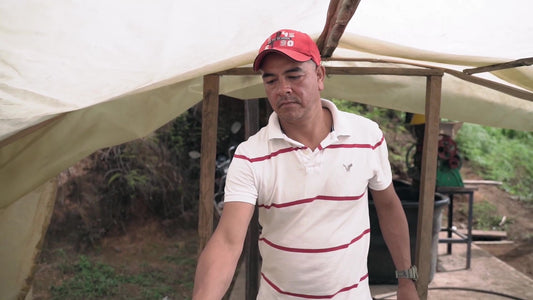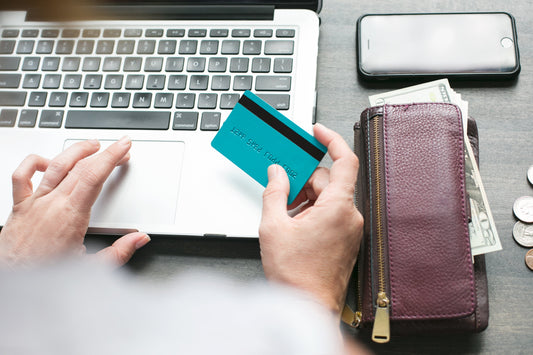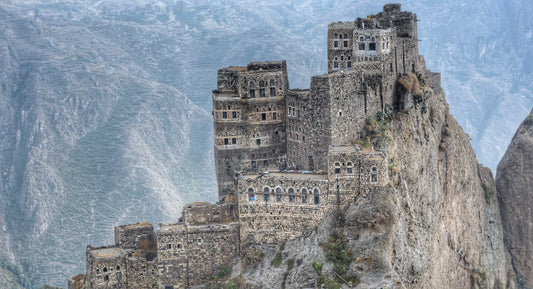It’s so easy to just pick up a bag of coffee at a shop, buy a delicious latte at a café, or spoon a teaspoon of ground coffee into your coffee maker at home and not think about the journey that aromatic brown bean has taken. Maybe you’re reading the label on the pack or the board in your favourite coffee shop and aren’t quite sure what it all means? Of course, you know it’s grown somewhere, but if you pause to think about it, how much do you really know about how it was made and who was part of the process. Perhaps, you’re not actually that bothered and are just needing a quick caffeine fix before diving back into the million and one things you’ve got to do today! But if you are interested in understanding a little bit more about the coffee that you’re drinking, from the different varietals, origins, types, and processes involved, and perhaps would like a tip or two to help you to appreciate and enjoy the brewing experience even more, read on below and hopefully we can help explain the amazing journey that bean has taken from the tropics all the way to your hand.
Where do coffee beans come from?
Coffee beans are the seeds of the Coffea plant, found within the plant’s small, cherry-like fruits. The plants are cultivated in over 70 countries, primarily along the equator in the "Bean Belt," which includes parts of South America, Africa, and Asia.

What are the three types of coffee beans?
Coffee beans are predominantly categorized into three types: Arabica, Robusta, and Liberica. Each type has distinct characteristics and flavours.
- Arabica: Known for its smooth, complex flavour profiles, Arabica beans are highly favoured for their quality and taste. They often feature notes of fruit and sugar, with high acidity and a multi-layered aroma. The majority of what is described as specialty coffee is Arabica coffee beans and often the word Arabica is used by brands to signify the quality of their coffee.
- Robusta: These beans are stronger and more bitter, with a grainy earthiness and less sweetness. They contain more caffeine than Arabica, which makes them more robust and resistant to diseases. You usually find Robusta beans in commercial and instant coffee. Robusta beans are often grown on large industrial farms and volume and lower costs are key to the producers.
- Liberica: Liberica beans are unique with a somewhat woody and smoky flavour profile, often described as having a slightly fruity and floral aroma. They are less common and cultivated in specific climates. There are some experts who think that Liberica could become more prevalent in the coffee industry due to its disease resistance and ability to grow in places that are being impacted by climate change.
Where do coffee beans grow?
Coffee beans grow in tropical climates around the equator, where temperatures, humidity, and rainfall are ideal for coffee cultivation. Major coffee-producing countries include Brazil, Colombia, Ethiopia, Vietnam, and Indonesia.
Is it possible to grow coffee in the UK?
Growing coffee commercially in the UK is not feasible due to the climate. However, enthusiasts can grow coffee plants indoors or in greenhouses and they have highly fragrant white flowers, though getting them to fruit can be challenging.
Which coffee beans are best?
The "best" coffee beans depend on personal taste preferences and we would recommend that you think of coffee not as one homogenous product but a world of different origins and production methods giving unique flavour profiles to try and enjoy. You can also look for coffees described as specialty coffee, which means that they meet a certain quality standard and are usually more interesting and tasty than what you generally find in the supermarket (although this is changing with some UK supermarkets selling specialty coffee on their shelves). However, many people do have their own personal preferences for what they think are the best coffee beans. If you’re completely new to this, we would recommend starting with high-quality Arabica beans from renowned regions like Ethiopia, Colombia, and Brazil, which generally considered superior in flavour and quality.
Where do the best coffee beans come from?
Some of the world's best coffee beans come from Ethiopia, known as the birthplace of coffee, Colombia, known for its rich, smooth coffee, and Jamaica, famous for the prestigious Blue Mountain coffee. Personally, we like to explore new origins whenever we finish a bag of coffee. Sometimes we find something that we absolutely love and sometimes it’s a bit meh,… won’t be buying that one again, but for the most part we think that exploring and discovering new coffees is part of the fun.

What's the difference between blended coffee and single origin?
Single origin coffee is from a specific location. This can be broken down into a single farm, a collection of farms from a particular area within a region, or sometimes even a whole country. The key is that all the beans come from that one place. The key thing to note about single lots is that they are highly traceable and highlight the unique flavours from that specific location. Blended coffee is when the roaster has made the decision to mix coffee beans from multiple origins to balance certain flavour profiles that each bean brings. Blends can be composed of beans from different countries, regions, and are often preferred by coffee roasters and cafes as they have more control over the consistency of the flavour and are often more balanced. It also can be more cost effective for the roaster who can choose to mix beans at different price points to produce their end product.
How Do You Choose and Purchase Coffee Beans?
Choosing coffee beans involves considering the roast, origin, and your flavour preferences. Look for freshly roasted beans from a reputable source and check the roast date to ensure freshness. We recommend trying a few and if you find something you absolutely can’t live without, stick with it (although given coffee is a seasonal product, if you’re buying specialty coffee your roaster may run out if it’s very popular and you’ll have to wait until the next seasons coffees arrive).
Where can you buy coffee beans?
You can buy coffee beans from supermarkets, specialty stores, coffee shops, or directly from roasters. Online platforms also offer a wide variety of beans from around the world.
Which ground coffee is the best?
The best ground coffee should be freshly ground from high-quality beans, ideally brewed within 20 minutes of grinding. The unfortunate reality is as soon as you grind coffee you expose it to the air, which leads to oxygenation and flavour loss. Roasters who sell ground coffee try to minimise this by sealing the coffee in airtight packaging, which is quite effective but you will lose some of the amazing flavours compared to if you ground at home. Specialty coffees from single-origin beans are often preferred for their unique characteristics and superior taste.
When is the best before date for coffee beans? How long should coffee last?
Coffee beans are best used within a few weeks of roasting and ideally ground just before brewing. There’s some debate about whether coffee should be used immediately after roasting with many roasters recommending that you wait five days after roasting before using the beans. Stored properly, whole beans can last up to a month without significant loss of flavour, while ground coffee should be used within two weeks if stored in an airtight container.
How Are Coffee Beans Prepared?
Preparing coffee beans involves several steps from planting to brewing: planting, harvesting, processing, drying, transporting, roasting, grinding, and finally brewing. There’s a lot that happens between the farmer and you and quite a few people involved in the process.
How are coffee beans roasted?
Coffee roasting is a heat process that turns green coffee beans into the brown beans we know. The green beans are raw and have a grassy smell before they are roasted. As heat is applied, the beans go through various processes from a drying phase where they turn from green to yellow and then light brown (at this point the roastery smells like a bakery as a fresh bread aroma fills the room). After that it goes through a chemical reaction called the Millard reaction where amino acids and sugars react and the beans start to brown, expand and become lighter. The beans then go through the first crack, which is when moisture in the bean is rapidly expelled and it sounds a bit like a popcorn maker. At this point the beans are at a light roast and it’s then up to the roaster to decide how long in the development time the beans will stay before being removed from the heat depending on the flavour they want to achieve. The roasting process has a huge influence on the flavour of the coffee and can range from light to dark roasts.
How many coffee beans are needed per cup in the UK?
About 15-17 grams of coffee beans are used per standard cup (approximately 240 ml), which translates to roughly 50 beans depending on their size and density.
How much ground coffee is needed for a French press?
A French press typically requires about 15-20 grams of coarse ground coffee per 240 ml of water. The best thing to do is start here and if it’s too strong or too weak for your taste, adjust accordingly.
How much ground coffee is needed for a filter?
For filter coffee, you would use about 15-17 grams of medium ground coffee per 240 ml of water. Again, adjust the amount of coffee/water up or down depending on how you like your coffee.
How much ground coffee is needed per litre of water?
For brewing one litre of coffee, which is roughly four standard cups, you would need roughly 65 grams of ground coffee.
How much ground coffee is needed for 6 cups?
For six cups of coffee (each cup roughly 240 ml), you would need about 100 grams of ground coffee.
What ground coffee is best for pour over?
Medium-fine ground coffee is best for pour-over brew methods to ensure optimal extraction without over-extracting and becoming bitter. The basic principle is if the water is going to be in contact for a long time (French Press) you want a coarser grind but if it’s for a short time (expresso) then a finer grind is better.

How Should Coffee Be Stored?
Proper storage is crucial to maintaining coffee's freshness and flavour. Coffee should be stored in an airtight container away from light, heat, and moisture.
Should ground coffee be kept in the fridge?
Ground coffee should not be kept in the fridge as it can absorb odours and moisture from the environment. Instead, store it in a cool, dark place.
Can ground coffee be frozen?
You can freeze ground coffee in an airtight container to extend its shelf life, though it might affect subtle flavour nuances. We don’t but that’s probably because we get through a lot of coffee quickly!
Where should you keep ground coffee?
Keep ground coffee in an airtight container in a cool, dark cupboard away from any heat sources.
How long does ground coffee last?
Ground coffee can last for up to two weeks in a pantry but up to a month if stored properly in the freezer.
Can ground coffee go bad?
Ground coffee can go stale, losing its flavour and aroma. While it won't spoil like perishable food, it can taste flat and unappealing.
Can ground coffee expire or go out of date?
Ground coffee does not expire in the sense of becoming unsafe to consume, but it does lose quality over time and is best used within a few weeks of opening. We always put a roasting date on our coffees and recommend it’s used within a month for best flavour, but you can push this out further.
What Can Be Done With Used Coffee Grounds?
Used coffee grounds can be repurposed in many ways, including as fertilizer, compost, or as a natural cleaning scrub. We’ve even seen it used to grow mushrooms, be turned into burnable logs for log burners and used in soap!
What should you do with ground coffee after it’s used?
Used ground coffee can be added to compost piles, used as a fertilizer for plants, or used in homemade skincare scrubs for its abrasive properties.
Why are coffee grounds good for plants?
Yes, ground coffee beans can be beneficial for plants when used as compost or mulch as they add organic matter to the soil. Coffee grounds are rich in nitrogen, which is beneficial to plant growth. They can help improve soil structure and attract earthworms. Coffee also helps to deter snails and slugs so worth considering if you’re green fingered.
Will ground coffee hurt my plants?
While coffee grounds can benefit plants, they should be used in moderation as too much can inhibit plant growth due to high caffeine content which can be toxic to some plants.
Additional Considerations
Are coffee beans good for you?
Everything in moderation my friend! Most scientists and doctors would say that a cup or two a day is not going to be an issue for most people and could potentially have some health benefits. For some groups like children, during pregnancy, or those with heart conditions, it’s best to seek medical guidance before consuming coffee. Coffee beans contain antioxidants and have been linked to various health benefits, including a reduced risk of liver disease and type 2 diabetes.
What is instant coffee?
Instant coffee is coffee that has been brewed, concentrated, and then dried into a powder or granules that dissolve when mixed with hot water. The production of instant coffee involves several complex processes that transform brewed coffee into a dry powder or granules that can readily dissolve in water. During the process, some of the volatile compounds that give coffee its distinct aroma and flavour can be lost and in high-quality instant coffee production, these aromatic compounds are captured during the extraction process and reintroduced to the dry instant coffee before packaging.
Is ground coffee better than instant coffee?
Ground coffee typically offers better flavour and aroma than instant coffee because it retains more of the natural oils and compounds present in the beans. There are some new instant coffees that claim to be as good as ground specialty coffee, but personally, we’re not yet convinced the convenience factor outweighs the end product.





